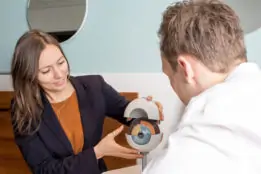PRK Recovery Time: What to Expect

Your eye surgeon has recommended photorefractive keratotomy or PRK for your laser vision correction procedures and naturally you want to understand the PRK recovery time and what you can expect during the healing process. In this article, we discuss the PRK recovery period in detail and answer the most common questions about what to expect and how to make the process as easy as possible.
PRK is a great option for vision correction for those who are good candidates. You can get an in-depth description of the PRK process in our article, but essentially the procedure goes like this:
- Numbing eye drops are used to keep you comfortable through the procedure
- The surface layer of cells is gently removed from the cornea
- A laser beam precisely reshapes the corneal, removing microscopic pieces of tissue to improve vision
- A contact lens bandage is placed over the reshaped cornea to protect it during the recovery and your eye doctor will remove the contact lens in 3-5 days.
Will My Eyes Hurt After PRK?
Visual outcomes with PRK are similar to LASIK, however, the PRK recovery process is more prolonged and there may be some discomfort involved. While the procedure itself is relatively painless, the recovery is slower because the surface layer – or epithelium – of the eye has to re-grow which usually takes 3-5 days. Once the anesthesia wears off patients experience various degrees of eye tenderness and irritation, dry eye symptoms, and light sensitivity during the recovery process. In general, about one-third of patients have very little discomfort, one-third experience mild pain, and one-third of patients have more significant discomfort. A few things to keep in mind:
- For two to three days after PRK, you may have some eye pain. Over-the-counter (OTC) medicine usually controls the pain.
- If your pain is not well controlled by OTC medications, give your ophthalmologist a call. Typically, stronger prescription medication is provided to help relieve pain.
How long Will I Need Eye Drops After PRK?
Eye drops are a necessary part of the PRK recovery and healing process. You should expect to have a variety of eye drops prescribed to you to prevent inflammation and infection and help keep the eyes moist and comfortable. How long you specifically will need to use them will be up to your ophthalmologist, but generally speaking, PRK patients use eye-drop medicine for a month or so.
When Will I See Clearly After PRK?
The surface layer of cells of the eye takes about 3-to-5 days to heal and during this time your vision is likely to be blurry. The vision may be quite good immediately following the procedure and get a little worse for a few days. However, by the fifth day after PRK surgery, you can expect your vision to clear up. Patients may have some glare, halos, starbursts, haziness, and difficulty seeing in low light settings. As healing progresses, these light sensitivity issues usually resolve within 7 to 10 days after PRK. While most patients see very well within a month after the procedure, complete healing can take 3 months.
How Long After PRK Can I Drive?
To be clear, you can’t drive on the day of surgery. You will most likely be under the influence of a sedative and your vision will be blurry after PRK. However, most people can see well enough to drive within a week. Importantly, you should only drive if you can see well enough to drive safely.
When Can I Watch TV After PRK?
During the first 24 hours after PRK, it is important to rest your eyes and avoid any activities that can lead to eye strain. This includes watching TV, reading, using the computer, etc. Keeping the visual demands on your eyes to a minimum for the first day or so after PRK will make for a smoother healing experience. Patients typically spend the first few hours after PRK sleeping, which is great because the eyes are closed and the body is restoring itself. After a good rest, it is normal to want some form of entertainment. This is a great time to catch up on your favorite podcasts or listen to music or audiobooks. We strongly recommend downloading everything in advance so you can easily access them without taxing your eyes.
How Long Do I Have to Wear Sunglasses After PRK?
Good quality, 400+ rated sunglasses are important to the health and protection of everyone’s eyes, regardless of having a laser vision correction procedure. However, sunglasses, with ultraviolet light protection and ideally with antiglare coating, are essential for PRK patients during the PRK recovery time because sun exposure before the surface layer of the cornea has had a chance to heal can lead to vision problems. Plus, sunglasses can offer relief from the light sensitivity symptoms that can occur during the first couple of weeks. Your ophthalmologist may give you a pair to get you through the first few days and provide instructions about how long you will need to wear your sunglasses after your PRK procedure.
How Long After PRK Can I Work Out?
Depending on the type of activity you enjoy, you can likely return to exercising anywhere from 5 days to a couple of weeks. It is important in the first days to avoid strenuous activity that could result in sweat getting into the eyes. A few other considerations for working out after PRK:
- Swimming pools, hot tubs, oceans, lakes, and rivers should be avoided for the first 1-to-2 weeks.
- Once your doctor gives you the okay to return to your exercise routine or sport, eye protection is always a good idea. Goggles and impact-resistant sunglasses are good options, depending on your activity.
How Long After PRK Can I Wear Makeup?
Because there is a risk of chemicals and foreign material getting into the eye while it is healing, patients need to take a 1-to-2 week break from wearing make-up and using skincare products around the eyes after PRK surgery. Check with your ophthalmologist during your post-op care visits about how long after PRK you should wait to wear makeup. Be careful when washing your face, you want to keep any cleansers out of your eyes. Avoid putting creams, serums, and lotions in and around the eye area.
PRK Recovery Tips
Because it can be uncomfortable, it is normal for patients to want to know how to speed up PRK recovery. Healing takes time. To get the best outcome from the procedure, it is important to support your eyes and vision while recovering from PRK. This process can take several days, so here are a few tips to support your PRK recovery time:
- You will need to have someone drive you home after surgery. You should plan to go home and take a nap or just relax after the surgery.
- Your surgeon may recommend that you take a few days off from work.
- Have a few meals and quick (but healthy) snacks prepared in advance of your surgery day. You can fill in with delivery services as needed, but being well-stocked for a few days is a good idea. High-quality proteins are important for healing.
- Think about how you will entertain yourself, without straining your eyes, for at least the first 24-48 hours. Napping is a great way to support healing.
- Make sure you have some over-the-counter pain medication (e.g., ibuprofen or naproxen ) available at home.
- You can shower the day following your PRK but avoid putting tap water in your eyes.
- If the bandage contact lens falls out, don’t worry. It will not affect your result. Just call your eye doctor, let them know, and make a follow-up appointment.
- Invest in high-quality, protective, UV-blocking sunglasses.
- Consider storing the eye drop medications in the refrigerator, some patients find using cool drops soothing in the first few days after PRK.
- Avoid dusty environments, like gardening and housekeeping, for the first couple of weeks. Let your ophthalmologist know if you have seasonal allergies and what medications you take to manage your symptoms. You want to avoid rubbing your eyes after PRK and these eye irritants are known triggers.
Laser vision correction procedures, like PRK, offer a safe way to achieve great vision without relying on glasses or contact lenses. Educating yourself on the procedure and the PRK recovery process is the best way to set yourself up for a successful outcome. Your surgeon can help answer questions with your specific vision and eye health issues in mind. You can find out more about PRK procedures and laser vision correction within our blog.




